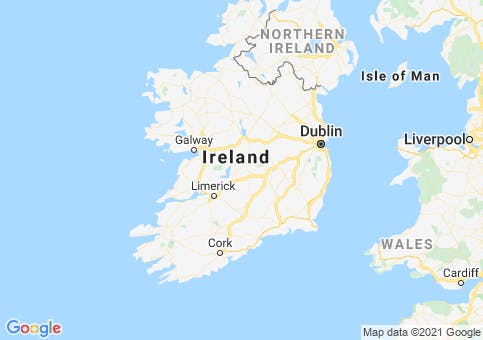The monthly cost of living in Ireland isn’t one-size-fits-all. It depends, as ever, on your lifestyle choices—do you favor the bustle of Dublin, or the quiet rhythms of a coastal town in Mayo? Will you rent a sleek city apartment or buy a charming stone cottage in the countryside? Will you shop for imported brands or fill your basket with local produce?
The good news is, you have options. And plenty of expats are finding that life here, while not as cheap as it once was, is still worth every euro.
Your chance to retire overseas now
Your chance to retire overseas now
Learn more about Ireland and other destinations by signing up to our daily IL Postcards e-letter and we'll immediately send you a free report: 20 Countries Compared, Contrasted, Ranked, and Rated.
You don’t have to be rich to enjoy a pampered retirement, you just need to know where to go.
With our 34th Annual Global Retirement Index, our experts hand you a detailed roadmap. Details and a Special Offer Here!

By submitting your email address, you will receive a free subscription to IL Postcards, Overseas Dream Home, The Untourist Daily and special offers from International Living and our affiliates. You can unsubscribe at any time, and we encourage you to read more about our Privacy Policy.
Housing: Your Biggest Line Item
Rent remains the biggest variable in most people’s monthly budget. If you’re looking at city living, be prepared: Dublin is one of Europe’s most expensive capitals. A one-bedroom apartment in the heart of the city can easily run you €2,500 or more per month.
But step outside the capital, or better yet, head for a rural town or scenic village, and prices drop dramatically. In places like County Leitrim, Roscommon, or Tipperary, it’s still possible to find a comfortable home to rent for around €1,000/month.
Prices have risen steadily, but many areas, especially outside commuter belts, still present smart opportunities for long-term investment.
Everyday Essentials: What’s in the Basket?
Grocery prices have climbed in 2025, reflecting global food inflation and local supply costs. But with some planning and a preference for local products, you can keep things manageable.
Discount chains like Lidl and Aldi continue to offer strong value, while Tesco, Dunnes Stores, and SuperValu stock a wider selection, often at slightly higher prices, though sales are frequent.
Here’s what you might expect to pay these days:
A liter of milk: €1.10
A dozen eggs: €3.10
Bananas (1 kilo): €1.50
Chicken (whole, per kilo): €4.75
Bread loaf: €1.50
Cod fillets (per kilo): €14.50
For most single expats, monthly grocery spending ranges from €350 to €550, depending on shopping habits and whether you dine out frequently.
Utilities: Predictable… but Rising
Electricity and gas bills have increased notably in recent years. Today, the average household spends about €1,800 per year on electricity, roughly €150/month, and €1,570 per year on gas, where available. A recent increase in variable-rate plans added an extra €126 annually for many homes.
Water, waste collection, and broadband typically add another €50 to €80/month. Altogether, monthly utilities can fall between €120 and €210, depending on your usage, the season, and your home’s energy efficiency.
Getting Around
If you live in a city like Dublin or Cork, public transportation is a solid, cost-effective option. Buses, trains, and trams (in Dublin) are frequent and efficient. A monthly commuter pass in Dublin costs around €96, while in Cork, Limerick, and Galway, you’ll pay between €60 and €80.
In rural areas, however, public transit is often sparse, especially if you’re off a main road. In those cases, a car becomes essential. Budget around €250/month for a modest used vehicle. That includes insurance, road tax, routine maintenance, and fuel.
Petrol, as of mid‑2025, costs around €1.80 per liter, or roughly $7 per gallon. Many locals and expats alike opt for smaller, fuel-efficient vehicles.
Healthcare: Plan Ahead if You’re Non-EU
While public healthcare is available in Ireland, non-EU citizens and those without permanent residency will likely need to purchase private health insurance.
The Irish system uses a community rating model—meaning everyone pays the same base premium for a plan regardless of health status. However, an age-related loading applies: if you’re over 34 when you first purchase a policy, your premium increases by 2% for every year over that age, up to a maximum of 70%.
As of 2025, the average annual private health insurance premium is €1,740, not including age-based surcharges.
While not inexpensive, premiums are regulated, plans are comprehensive, and coverage is widely available. Most expats find Irish healthcare reliable, though wait times in the public system can be long.
So… How Much Do You Really Need?
It depends on how you want to live. A single person in a modest home outside Dublin can live quite comfortably on €2,500 to €3,000/month, including rent, food, utilities, and transport. A couple might spend €3,000 to €4,000/month, depending on where they live and their budgeting habits.
The bottom line? Ireland is not a bargain destination. But it offers a lifestyle that blends modern conveniences with natural beauty and a strong sense of community. For many, the extra cost is more than worth it.
As one long-time expat put it, “You’ll pay a bit more for the privilege of waking up to misty green hills, waves crashing on a wild coastline, and neighbors who stop for a chat. But that’s a cost I’m happy to pay.”
Your chance to retire overseas now
Your chance to retire overseas now
Learn more about Ireland and other destinations by signing up to our daily IL Postcards e-letter and we'll immediately send you a free report: 20 Countries Compared, Contrasted, Ranked, and Rated.
You don’t have to be rich to enjoy a pampered retirement, you just need to know where to go.
With our 34th Annual Global Retirement Index, our experts hand you a detailed roadmap. Details and a Special Offer Here!

By submitting your email address, you will receive a free subscription to IL Postcards, Overseas Dream Home, The Untourist Daily and special offers from International Living and our affiliates. You can unsubscribe at any time, and we encourage you to read more about our Privacy Policy.











